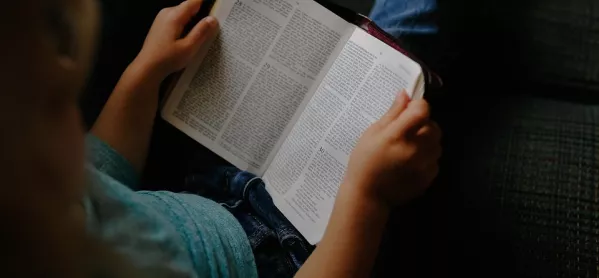More than 750,000 UK schoolchildren do not have a single book of their own, a new survey suggests
These children are four times more likely than their book-owning peers to be below the expected standard in reading for their age.
The National Literacy Trust surveyed more than 42,000 children between the ages of 8 and 18. It found that 9.4 per cent did not have any books of their own at home.
Extrapolating these figures out to all children in the country between these ages, this would equate to 770,139 children nationally who did not own any books.
Reading levels
Boys, teenagers and pupils who receive free school meals were the most likely to say that they had no books of their own at home.
In fact, boys were almost twice as likely as girls - 12.3 per cent, compared with 6.6 per cent - to say that they did not own any books. And pupils aged between 14 and 16 were twice as likely to own no books as those aged between 8 and 11 - 14.9 per cent against 7 per cent.
Meanwhile, 13.1 per cent of pupils who received free school meals said that they did not have any books of their own at home, compared with 9.4 per cent of those who did not receive free school meals.
The trust also found that children who own a book are 15 times more likely to read above the level expected for their age than their bookless peers (28 per cent, compared with 1.9 per cent).
Book-owning children are also four times less likely to read below the expected level - 12.9 per cent, compared with 48.1 per cent - than their peers without books. Children who do not have any books of their own have an average reading score that is at the bottom end of the average test range.
‘Discovering new worlds’
Jonathan Douglas, director of the National Literacy Trust, said: “Books have the power to transform children’s lives.”
This research has been published to coincide with the launch of the charity’s Christmas Stories campaign, which aims to provide disadvantaged children with books of their own.
Cressida Cowell, author of the bestselling How To Train Your Dragon series, is taking part in the campaign. “Opening a new book for the very first time still fills me with the same excitement and anticipation that it did as a child,” she said. “Not only do books enable children to discover new worlds, meet new people and learn about the past, but they also have the power to transform lives.
“By sparking imaginations, stimulating critical thinking and helping develop empathy, reading gives children the very literacy skills they need to succeed at school, at work and in life.”
Want to keep up with the latest education news and opinion? Follow Tes on Twitter and Instagram, and like Tes on Facebook




